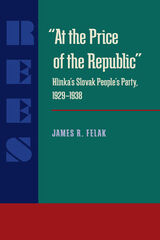
Slovak nationalist sentiment has been a constant presence in the history of Czechoslovakia, coming to head in the torrent of nationalism that resulted in the dissolution of the Republic on January 1, 1993. James Felak examines a parallel episode in the 1930s with Slovak nationalists achieved autonomy for Slovakia-but “at the price” of the loss of East Central Europe's only parliamentary democracy and the strengthening of Nazi power.
The tensions between Czechs and Slovaks date back to the creation of Czechoslovakia in 1918. Slovaks, who differed sharply in political tradition, social and economic development, and culture, and resented being governed by a centralized administration run from the Czech capital of Prague, formed the Slovak People's Party, led by Roman Catholic priest Ankrej Hlinka. Drawing heavily on Czech and Slovak archives, Felak provides a balanced history of the party, offering unprecedented insight into intraparty factionalism and behind-the-scenes maneuvering surrounding SSP's policy decisions.
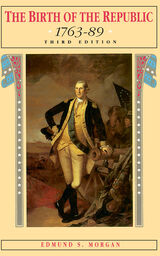
In one remarkable quarter-century, thirteen quarrelsome colonies were transformed into a nation. Edmund S. Morgan's classic account of the Revolutionary period shows how the challenge of British taxation started the Americans on a search for constitutional principles to protect their freedom and eventually led to the Revolution.
Morgan demonstrates that these principles were not abstract doctrines of political theory but grew instead out of the immediate needs and experiences of the colonists. They were held with passionate conviction, and incorporated, finally, into the constitutions of the new American states and of the United States.
Though the basic theme of the book and his assessment of what the Revolution achieved remain the same, Morgan has updated the revised edition of The Birth of the Republic (1977) to include some textual and stylistic changes as well as a substantial revision of the Bibliographic Note.
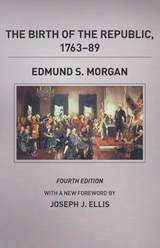
In The Birth of the Republic, 1763–89, Edmund S. Morgan shows how the challenge of British taxation started Americans on a search for constitutional principles to protect their freedom, and eventually led to the Revolution. By demonstrating that the founding fathers’ political philosophy was not grounded in theory, but rather grew out of their own immediate needs, Morgan paints a vivid portrait of how the founders’ own experiences shaped their passionate convictions, and these in turn were incorporated into the Constitution and other governmental documents. The Birth of the Republic is the classic account of the beginnings of the American government, and in this fourth edition the original text is supplemented with a new foreword by Joseph J. Ellis and a historiographic essay by Rosemarie Zagarri.
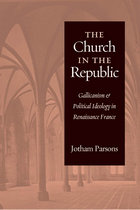
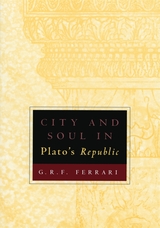
In addition to acknowledging familiar themes in the interpretation of the Republic—the sincerity of its utopianism, the justice of the philosopher's return to the Cave—Ferrari provocatively engages secondary literature by Leo Strauss, Bernard Williams, and Jonathan Lear. With admirable clarity and insight, Ferrari conveys the relation between the city and the soul and the choice between tyranny and philosophy. City and Soul in Plato's Republic will be of value to students of classics, philosophy, and political theory alike.
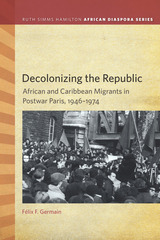
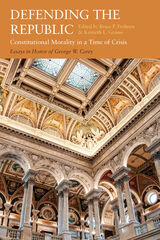

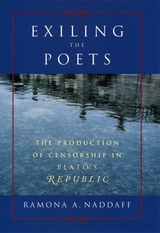
Censorship, Nadaff argues, is not merely a mechanism of silencing but also provokes new ways of speaking about controversial and crucial cultural and artistic events. It functions philosophically in the Republic to subvert Plato's most crucial arguments about politics, epistemology, metaphysics, and ethics. Naddaff develops this stunning argument through an extraordinary reading of Plato's work. In books 2 and 3, the first censorship of poetry, she finds that Plato constitutes the poet as a rival with whom the philosopher must vie agonistically. In other words, philosophy does not replace poetry, as most commentators have suggested; rather, the philosopher becomes a worthy and ultimately victorious poetic competitor. In book 10's second censorship, Plato exiles the poets as a mode of self-subversion, rethinking and revising his theory of mimesis, of the immortality of the soul, and, most important, the first censorship of poetry. Finally, in a subtle and sophisticated analysis of the myth of Er, Naddaff explains how Plato himself censors his own censorships of poetry, thus producing the unexpected result of a poetically animated and open-ended dialectical philosophy.
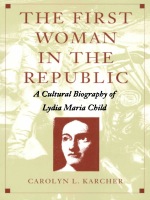
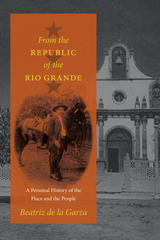
The Republic of the Rio Grande had a brief and tenuous existence (1838–1840) before most of it was reabsorbed by Mexico and the remainder annexed by the United States, yet this region that straddles the Rio Grande has retained its distinctive cultural identity to the present day. Born on one side of the Rio Grande and raised on the other, Beatriz de la Garza is a product of this region. Her birthplace and its people are the subjects of this work, which fuses family memoir and borderlands history.
From the Republic of the Rio Grande brings new insights and information to the study of transnational cultures by drawing from family papers supplemented by other original sources, local chronicles, and scholarly works. De la Garza has fashioned a history of this area from the perspective of individuals involved in the events recounted. The book is composed of nine sections spanning some two hundred years, beginning in the mid-1700s. Each section covers not only a chronological period but also a particular theme relating to the history of the region. De la Garza takes a personal approach, opening most sections with an individual observation or experience that leads to the central motif, whether this is the shared identity of the inhabitants, their pride in their biculturalism and bilingualism, or their deep attachment to the land of their ancestors.
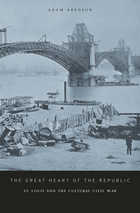
The Civil War revealed what united as well as what divided Americans in the nineteenth century—not only in its deadly military conflict, but also in the broader battle of ideas, dueling moral systems, and competing national visions that preceded and followed. This cultural civil war was the clash among North, South, and West, as their leaders sought to shape Manifest Destiny and slavery politics.
No site embodied this struggle more completely than St. Louis, the largest city along the border of slavery and freedom. In this sweeping history, Adam Arenson reveals a city at the heart of the cultural civil war. St. Louisans heralded a new future, erasing old patterns as the United States stretched across the continent. They tried to reorient the nation’s political landscape, with westerners in the vanguard and St. Louis as the cultural, commercial, and national capital. John C. Calhoun, Frederick Douglass, Walt Whitman, and John Brown tracked the progress of the cultural contest by monitoring events in St. Louis, observing how the city’s leaders tried yet ultimately failed to control the national destiny.
The interplay of local ambitions and national meanings reveals the wider cultural transformation brought about by westward expansion, political strife, and emancipation in the era of the Civil War and Reconstruction. This vibrant and beautifully written story enriches our understanding of America at a crossroads.
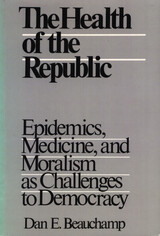
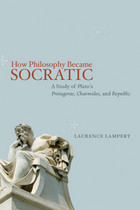
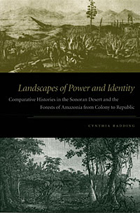
Radding’s comparative approach illuminates what happened when similar institutions of imperial governance, commerce, and religion were planted in different physical and cultural environments. She draws on archival documents, published reports by missionaries and travelers, and previous histories as well as ecological studies and ethnographies. She also considers cultural artifacts, including archaeological remains, architecture, liturgical music, and religious dances. Radding demonstrates how colonial encounters were conditioned by both the local landscape and cultural expectations; how the colonizers and colonized understood notions of territory and property; how religion formed the cultural practices and historical memories of the Sonoran and Chiquitano peoples; and how the conflict between the indigenous communities and the surrounding creole societies developed in new directions well into the nineteenth century.
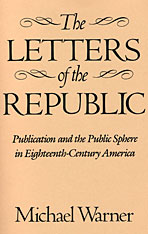
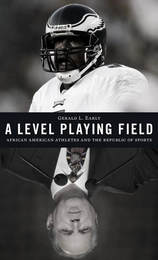
As Americans, we believe there ought to be a level playing field for everyone. Even if we don’t expect to finish first, we do expect a fair start. Only in sports have African Americans actually found that elusive level ground. But at the same time, black players offer an ironic perspective on the athlete-hero, for they represent a group historically held to be without social honor.
In his first new collection of sports essays since Tuxedo Junction (1989), the noted cultural critic Gerald Early investigates these contradictions as they play out in the sports world and in our deeper attitudes toward the athletes we glorify. Early addresses a half-century of heated cultural issues ranging from integration to the use of performance-enhancing drugs. Writing about Jackie Robinson and Curt Flood, he reconstructs pivotal moments in their lives and explains how the culture, politics, and economics of sport turned with them. Taking on the subtexts, racial and otherwise, of the controversy over remarks Rush Limbaugh made about quarterback Donovan McNabb, Early restores the political consequence to an event most commentators at the time approached with predictable bluster.
The essays in this book circle around two perennial questions: What other, invisible contests unfold when we watch a sporting event? What desires and anxieties are encoded in our worship of (or disdain for) high-performance athletes?
These essays are based on the Alain Locke lectures at Harvard University’s Du Bois Institute.
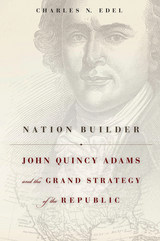
“America goes not abroad, in search of monsters to destroy”—John Quincy Adams’s famous words are often quoted to justify noninterference in other nations’ affairs. Yet when he spoke them, Adams was not advocating neutrality or passivity but rather outlining a national policy that balanced democratic idealism with a pragmatic understanding of the young republic’s capabilities and limitations. America’s rise from a confederation of revolutionary colonies to a world power is often treated as inevitable, but Charles N. Edel’s provocative biography of Adams argues that he served as the central architect of a grand strategy that shaped America’s rise. Adams’s particular combination of ideas and policies made him a critical link between the founding generation and the Civil War–era nation of Lincoln.
Examining Adams’s service as senator, diplomat, secretary of state, president, and congressman, Edel’s study of this extraordinary figure reveals a brilliant but stubborn man who was both visionary prophet and hard-nosed politician. Adams’s ambitions on behalf of America’s interests, combined with a shrewd understanding of how to counter the threats arrayed against them, allowed him to craft a multitiered policy to insulate the nation from European quarrels, expand U.S. territory, harness natural resources, develop domestic infrastructure, education, and commerce, and transform the United States into a model of progress and liberty respected throughout the world.
While Adams did not live to see all of his strategy fulfilled, his vision shaped the nation’s agenda for decades afterward and continues to resonate as America pursues its place in the twenty-first-century world.
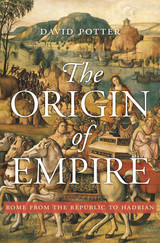
Beginning with the Roman army’s first foray beyond its borders and concluding with the death of Hadrian in 138 CE, this panoramic history of the early Roman Empire recounts the wars, leaders, and social transformations that lay the foundations of imperial success.
Between 264 BCE, when the Roman army crossed into Sicily, and the death of Hadrian nearly three hundred years later, Rome became one of the most successful multicultural empires in history. In this vivid guide to a fascinating period, David Potter explores the transformations that occurred along the way, as Rome went from republic to mercenary state to bureaucratic empire, from that initial step across the Straits of Messina to the peak of territorial expansion.
Rome was shaped by endless political and diplomatic jockeying. As other Italian city-states relinquished sovereignty in exchange for an ironclad guarantee of protection, Rome did not simply dominate its potential rivals—it absorbed them by selectively offering citizenship and constructing a tiered membership scheme that allowed Roman citizens to maintain political control without excluding noncitizens from the state’s success. Potter attributes the empire’s ethnic harmony to its relative openness.
This imperial policy adapted and persisted over centuries of internal discord. The fall of the republican aristocracy led to the growth of mercenary armies and to the creation of a privatized and militarized state that reached full expression under Julius Caesar. Subsequently, Augustus built a mighty bureaucracy, which went on to manage an empire ruled by a series of inattentive, intemperate, and bullying chief executives. As contemporary parallels become hard to ignore, The Origin of Empire makes clear that the Romans still have much to teach us about power, governance, and leadership.

On July 10, 1940, by a 570 to 80 margin, the representatives in the French parliament voted full powers to Philippe Pétain, ending the Third Republic and paving the way for the collaborationist Vichy regime. Olivier Wieviorka offers a nuanced portrait of the individuals who determined the fate of France at this critical moment.
Pétain claimed to be saving France from ruin. The day of the vote has been described as a journée des dupes, the legislators so ignorant or fearful that they voted without a thought to the consequences. But Wieviorka shows that most of the deputies made a considered decision to vote for Pétain. He analyzes the factors, such as political culture and regional origins, that motivated the voting on both sides, and traces the men’s fates through the war.
Recreating the tense atmosphere of summer 1940, Wieviorka shows how pressures brought on by defeat could affect even the most hardened republicans. He illuminates the complex moral issues inherent in accommodation and collaboration in a time of crisis.
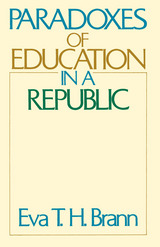
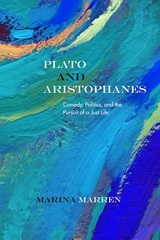
Marren makes this case by delving into Plato’s Republic, a foundational work of political philosophy. While the Republic straightforwardly condemns the decadence and greed of a tyrant, Plato’s attack on political idealism is both solemn and comedic. In fact, Plato draws on the same comedic stock and tropes as do Aristophanes’s plays. Marren’s book strikes up an innovative conversation between three works by Aristophanes—Assembly Women, Knights, and Birds—and Plato’s philosophy, prompting important questions about individual convictions and one’s personal search for justice. These dialogic works offer critiques of tyranny that are by turns brilliant, scathing, and exuberant, making light of faults and ideals alike. Philosophical comedy exposes despotism in individuals as well as systems of government claiming to be just and good. This critique holds as much bite against contemporary injustices as it did at the time of Aristophanes and Plato.
An ingenious new work by an emerging scholar, Plato and Aristophanes shows that comedy—in tandem with philosophy and politics—is essential to self-examination. And without such examination, there is no hope for a just life.
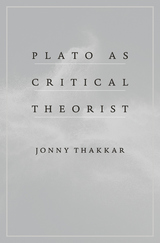
What is the best possible society? How would its rulers govern and its citizens behave? Such questions are sometimes dismissed as distractions from genuine political problems, but in an era when political idealism seems a relic of the past, says Jonny Thakkar, they are more urgent than ever. A daring experiment in using ancient philosophy to breathe life into our political present, Plato as Critical Theorist takes seriously one of Plato’s central claims: that philosophers should rule. What many accounts miss is the intimate connection between Plato’s politics and his metaphysics, Thakkar argues. Philosophy is the activity of articulating how parts and wholes best fit together, while ruling is the activity that shapes the parts of society into a coherent whole conducive to the good life. Plato’s ideal society is thus one in which ideal theory itself plays a leading role.
Today’s liberal democracies require not philosopher-kings legislating from above but philosopher-citizens willing to work toward a vision of the best society in their daily lives. Against the claim that such idealism is inherently illiberal, Thakkar shows that it is fully compatible with the liberal theories of both Popper and Rawls while nevertheless pushing beyond them in providing a new vantage point for the Marxian critique of capitalism.
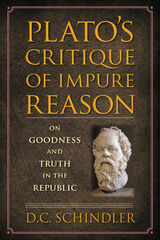
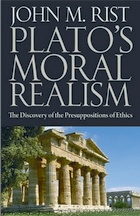

Since Friedrich Schleiermacher’s work in the 1800s, scholars interested in the literary dimension of Plato’s writings have sought to reconcile the dialogue form with the expository imperative of philosophical argument. It is now common for mainstream classicists and philosophers to attribute vital importance to literary form in Plato, which they often explain in terms of rhetorical devices serving didactic goals. This study brings the disciplines of literary and classical studies into methodological debate, questioning modern views of Plato’s dialogue form.
In the first part of this book, David Schur argues that the literary features of Plato’s dialogues—when treated as literary—cannot be limited to a single argumentative agenda. In the second part, he demonstrates the validity of this point by considering a rhetorical pattern of self-reflection that is prominent in the Republic. He emphasizes that Plato’s book consistently undermines the goal-driven conversation that it portrays. Offering a thought-provoking blend of methodological investigation and methodical close reading, Schur suggests that the Republic qualifies the authority of its conclusions by displaying a strong countercurrent of ongoing movement.
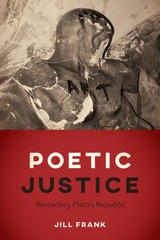
With Poetic Justice, Jill Frank overturns the conventional view that the Republic endorses a hierarchical ascent to knowledge and the authoritarian politics associated with that philosophy. When learning to read is understood as the passive absorption of a teacher’s beliefs, this reflects the account of Platonic philosophy as authoritative knowledge wielded by philosopher kings who ruled the ideal city. When we learn to read by way of the method Socrates introduces in the Republic, Frank argues, we are offered an education in ethical and political self-governance, one that prompts citizens to challenge all claims to authority, including those of philosophy.
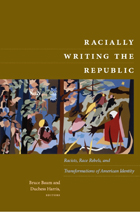
The contributors analyze Thomas Jefferson’s legacy in light of his sexual relationship with his slave, Sally Hemings; the way that Samuel Gompers, the first president of the American Federation of Labor, rallied his organization against Chinese immigrant workers; and the eugenicist origins of the early-twentieth-century birth-control movement led by Margaret Sanger. They draw attention to the writing of Sarah Winnemucca, a Northern Piute and one of the first published Native American authors; the anti-lynching activist Ida B. Wells-Barnett; the Filipino American writer Carlos Bulosan; and the playwright Lorraine Hansberry, who linked civil rights struggles in the United States to anticolonial efforts abroad. Other figures considered include Alexis de Tocqueville and his traveling companion Gustave de Beaumont, Juan Nepomuceno Cortina (who fought against Anglo American expansion in what is now Texas), Abraham Lincoln, Theodore Roosevelt, and W. E. B. Du Bois. In the afterword, George Lipsitz reflects on U.S. racial politics since 1965.
Contributors. Bruce Baum, Cari M. Carpenter, Gary Gerstle, Duchess Harris, Catherine A. Holland, Allan Punzalan Isaac, Laura Janara, Ben Keppel, George Lipsitz, Gwendolyn Mink, Joel Olson, Dorothy Roberts, Patricia A. Schechter, John Kuo Wei Tchen, Jerry Thompson
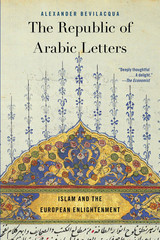
Winner of the Herbert Baxter Adams Prize
A Longman–History Today Book Prize Finalist
A Sheik Zayed Book Award Finalist
Winner of the Thomas J. Wilson Memorial Prize
A Times Literary Supplement Book of the Year
“Deeply thoughtful…A delight.”—The Economist
“[A] tour de force…Bevilacqua’s extraordinary book provides the first true glimpse into this story…He, like the tradition he describes, is a rarity.”
—New Republic
In the seventeenth and eighteenth centuries, a pioneering community of Western scholars laid the groundwork for the modern understanding of Islamic civilization. They produced the first accurate translation of the Qur’an, mapped Islamic arts and sciences, and wrote Muslim history using Arabic sources. The Republic of Arabic Letters is the first account of this riveting lost period of cultural exchange, revealing the profound influence of Catholic and Protestant intellectuals on the Enlightenment understanding of Islam.
“A closely researched and engrossing study of…those scholars who, having learned Arabic, used their mastery of that difficult language to interpret the Quran, study the career of Muhammad…and introduce Europeans to the masterpieces of Arabic literature.”
—Robert Irwin, Wall Street Journal
“Fascinating, eloquent, and learned, The Republic of Arabic Letters reveals a world later lost, in which European scholars studied Islam with a sense of affinity and respect…A powerful reminder of the ability of scholarship to transcend cultural divides, and the capacity of human minds to accept differences without denouncing them.”
—Maya Jasanoff
“What makes his study so groundbreaking, and such a joy to read, is the connection he makes between intellectual history and the material history of books.”
—Financial Times
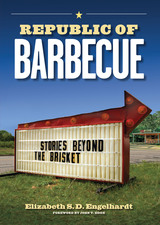
Winner, Barbara Sudler Award, Colorado Historical Society, 2010
It's no overstatement to say that the state of Texas is a republic of barbecue. Whether it's brisket, sausage, ribs, or chicken, barbecue feeds friends while they catch up, soothes tensions at political events, fuels community festivals, sustains workers of all classes, celebrates brides and grooms, and even supports churches. Recognizing just how central barbecue is to Texas's cultural life, Elizabeth Engelhardt and a team of eleven graduate students from the University of Texas at Austin set out to discover and describe what barbecue has meant to Texans ever since they first smoked a beef brisket.
Republic of Barbecue presents a fascinating, multifaceted portrait of the world of barbecue in Central Texas. The authors look at everything from legendary barbecue joints in places such as Taylor and Lockhart to feedlots, ultra-modern sausage factories, and sustainable forests growing hardwoods for barbecue pits. They talk to pit masters and proprietors, who share the secrets of barbecue in their own words. Like side dishes to the first-person stories, short essays by the authors explore a myriad of barbecue's themes—food history, manliness and meat, technology, nostalgia, civil rights, small-town Texas identity, barbecue's connection to music, favorite drinks such as Big Red, Dr. Pepper, Shiner Bock, and Lone Star beer—to mention only a few. An ode to Texas barbecue in films, a celebration of sports and barbecue, and a pie chart of the desserts that accompany brisket all find homes in the sidebars of the book, while photographic portraits of people and places bring readers face-to-face with the culture of barbecue.

In this imaginative exploration of modern legal culture, Lawrence Friedman addresses how the contemporary idea of individual rights has altered the legal systems and authority structures of Western societies. Every aspect of law, he argues--from civil rights to personal-injury litigation to divorce law--has been profoundly reshaped, reflecting the power of this concept.
The new individualism is quite different from that of the nineteenth century, which stressed self-control, discipline, and traditional group values. Modern individualism focuses on the individual as the starting and ending point of life and assumes a wide zone of choice. Choice is vital, fundamental: the right to develop oneself, to build up a life uniquely suited to oneself through free, open selection among forms, models, and lifestyles. With striking clarity and force, Friedman demonstrates how the new individualism results from changes in the technological and social framework of society. Loose, unconnected, free-floating, mobile: this is the modern individual, at least in comparison with the immediate past.
Written for the general reader as well as lawyers and legal scholars, The Republic of Choice offers keen and original observations about legal culture and the public consciousness that informs and expresses it.
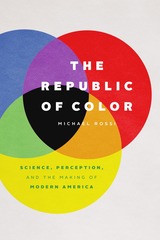
For a nation in the grip of profound economic, cultural, and demographic crises, the standardization of color became a means of social reform—a way of sculpting the American population into one more amenable to the needs of the emerging industrial order. Delineating color was also a way to characterize the vagaries of human nature, and to create ideal structures through which those humans would act in a newly modern American republic. Michael Rossi’s compelling history goes far beyond the culture of the visual to show readers how the control and regulation of color shaped the social contours of modern America—and redefined the way we see the world.
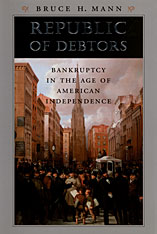
Debt was an inescapable fact of life in early America. At the beginning of the eighteenth century, its sinfulness was preached by ministers and the right to imprison debtors was unquestioned. By 1800, imprisonment for debt was under attack and insolvency was no longer seen as a moral failure, merely an economic setback. In Republic of Debtors, Bruce H. Mann illuminates this crucial transformation in early American society.
From the wealthy merchant to the backwoods farmer, Mann tells the personal stories of men and women struggling to repay their debts and stay ahead of their creditors. He opens a window onto a society undergoing such fundamental changes as the growth of a commercial economy, the emergence of a consumer marketplace, and a revolution for independence. In addressing debt Americans debated complicated questions of commerce and agriculture, nationalism and federalism, dependence and independence, slavery and freedom. And when numerous prominent men—including the richest man in America and a justice of the Supreme Court—found themselves imprisoned for debt or forced to become fugitives from creditors, their fate altered the political dimensions of debtor relief, leading to the highly controversial Bankruptcy Act of 1800.
Whether a society forgives its debtors is not just a question of law or economics; it goes to the heart of what a society values. In chronicling attitudes toward debt and bankruptcy in early America, Mann explores the very character of American society.
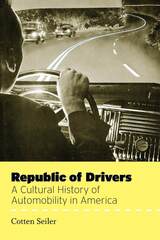
Cotten Seiler combs through a vast number of historical, social scientific, philosophical, and literary sources to illustrate the importance of driving to modern American conceptions of the self and the social and political order. He finds that as the figure of the driver blurred into the figure of the citizen, automobility became a powerful resource for women, African Americans, and others seeking entry into the public sphere. And yet, he argues, the individualistic but anonymous act of driving has also monopolized our thinking about freedom and democracy, discouraging the crafting of a more sustainable way of life. As our fantasies of the open road turn into fears of a looming energy crisis, Seiler shows us just how we ended up a republic of drivers—and where we might be headed.
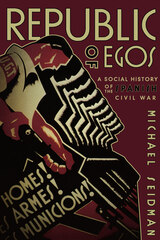
Most histories of the Spanish Civil War (1936–1939) have examined major leaders or well-established political and social groups to explore class, gender, and ideological struggles. The war in Spain was marked by momentous conflicts between democracy and dictatorship, Communism and fascism, anarchism and authoritarianism, and Catholicism and anticlericalism that still provoke our fascination.
In Republic of Egos, Michael Seidman focuses instead on the personal and individual experiences of the common men and women who were actors in a struggle that defined a generation and helped to shape our world. By examining the roles of anonymous individuals, families, and small groups who fought for their own interests and survival—and not necessarily for an abstract or revolutionary cause—Seidman reveals a powerful but rarely considered pressure on the outcome of history. He shows how price controls and inflation in the Republican zone encouraged peasant hoarding, black marketing, and unrest among urban workers. Soldiers of the Republican Army responded to material shortages by looting, deserting, and fraternizing with the enemy. Seidman’s focus on average, seemingly nonpolitical individuals provides a new vision of both the experience and outcome of the war.
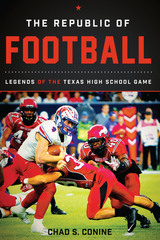
Anywhere football is played, Texas is the force to reckon with. Its powerhouse programs produce the best football players in America. In The Republic of Football, Chad S. Conine vividly captures Texas’s impact on the game with action-filled stories about legendary high school players, coaches, and teams from around the state and across seven decades.
Drawing on dozens of interviews, Conine offers rare glimpses of the early days of some of football’s biggest stars. He reveals that some players took time to achieve greatness—LaDainian Tomlinson wasn’t even the featured running back on his high school team until a breakthrough game in his senior season vaulted him to the highest level of the sport—while others, like Colt McCoy, showed their first flashes of brilliance in middle school. In telling these and many other stories of players and coaches, including Hayden Fry, Spike Dykes, Bob McQueen, Lovie Smith, Art Briles, Lawrence Elkins, Warren McVea, Ray Rhodes, Dat Nguyen, Zach Thomas, Drew Brees, and Adrian Peterson, Conine spotlights the decisive moments when players caught fire and teams such as Celina, Southlake Carroll, and Converse Judson turned into Texas dynasties. Packed with never-before-told anecdotes, as well as fresh takes on the games everyone remembers, The Republic of Football is a must-read for all fans of Friday night lights.
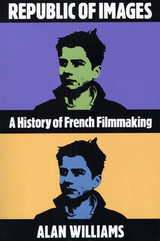
Chronicling one of the greatest and most popular national cinemas, Republic of Images traces the evolution of French filmmaking from 1895—the year of the debut of the Cinematographe in Paris—to the present day. Alan Williams offers a unique synthesis of history, biography, aesthetics and film theory. He brings to life all of the major directors, setting before us the cultures from which they emerged, and sheds new light on the landmark films they created. He distills what is historically and artistically unique in each of their careers and reveals what each artist has in common with the forebears and heirs of the craft.
Within the larger story of French cinema, Williams examines the treasury of personal expression, social commentary, and aesthetic exploration that France has produced so consistently and exported so well. It is the tale of an industry rife with crises, and Williams offers a superb narrative of the economic, political, and social forces that have shaped its century-long history. He provides biographical sketches of filmmakers from the early pioneers of the silent era such as Louis Lumière and Alice Guy to modern directors such as Louis Malle, Claude Chabrol, and François Truffaut. Some of their careers, he shows, exemplify the significant contributions individuals made to the development of French fllmmaking; others yield illuminating evidence of the problems and opportunities of a whole generation of filmmakers. Throughout, he presents critical analyses of significant films, from The Assassination of the Duc de Guise (1908) to works by the post–nouvelle vague directors.
Williams captures the formal and stylistic developments of film in France over nearly one hundred years. Free of cant and jargon, Republic of Images is the best general account available of the rich interplay of film, filmmaker, and society. It will delight both general reader and student, as well as the viewer en route to the video store.
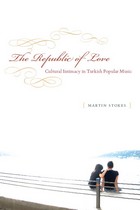
At the heart of The Republic of Love are the voices of three musicians—queer nightclub star Zeki Müren, arabesk originator Orhan Gencebay, and pop diva Sezen Aksu—who collectively have dominated mass media in Turkey since the early 1950s. Their fame and ubiquity have made them national icons—but, Martin Stokes here contends, they do not represent the official version of Turkish identity propagated by anthems or flags; instead they evoke a much more intimate and ambivalent conception of Turkishness.
Using these three singers as a lens, Stokes examines Turkey’s repressive politics and civil violence as well as its uncommonly vibrant public life in which music, art, literature, sports, and journalism have flourished. However, Stokes’s primary concern is how Müren, Gencebay, and Aksu’s music and careers can be understood in light of theories of cultural intimacy. In particular, he considers their contributions to the development of a Turkish concept of love, analyzing the ways these singers explore the private matters of intimacy, affection, and sentiment on the public stage.

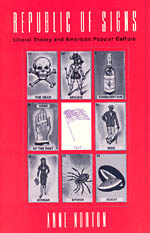
The author ranges over a wide expanse of popular activities (e.g. wrestling, roller derby, lotteries, shopping sprees, and dining out), as well as conventional political topics (e.g., the Constitution, presidency, news media, and centrality of law). Yet the argument is pointed and probling, never shallow or superficial. Fred and Wilma Flintstone are as vital to the republic as Franklin and Eleanor Roosevelt.
"In discussions that range from the Constitution and the presidency to money and shopping, voting, lotteries, and survey research, Norton discerns and imaginatively invents possibilities that exceed recognized actualities and already approved opportunities."—Richard E. Flathman, American Political Science Review
"[S]timulating and stylish exploration of political theory, language, culture, and shopping at the mall . . . popular culture at its best, informed by history and theory, serious in purpose, yet witty and modest in tone."—Bernard Mergen, American Studies International
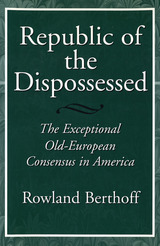
Do Americans, in all their cultural diversity, share any fundamental consensus? Does such a consensus, or anything else, make America exceptional in the modern world?
Since 1960 most historians have answered no--except perhaps for the current nostalgia for the Eisenhower years (the "Ozzie and Harriet" years of popular recollection) of middle-class American prosperity.
In Republic of the Dispossessed social historian Rowland Berthoff maintains not only that there was--and still is--a middle-class consensus and that America is exceptional in it but that it goes back some five hundred years. The consensus stems from all those European peasants and artisans who, from 1600 to 1950, fled dispossession in the Old World. They brought with them basic social values that acted as a template for middle-class American values. To consider modern American society as exceptional--that is, as distinctive and different from any contemporary European pattern of thought--is therefore, in Berthoff's theory, not at all the "illogical absurdity" that current conventional wisdom makes it.
The Berthoff thesis, as he develops it in these ten essays from throughout the course of his career, is well worth a second look by those within and beyond the field of social history. It suggests that the ideal--both peasant and classical republican-- of maintaining a balance between personal liberty and communal equality has long inspired American reaction to the drastic modern changes of industrialization, urbanization, and immigration.
Observing that most Americans still see themselves as independent, basically equal, middle-class citizens, Berthoff explains the current apprehension among Americans that at the end of the twentieth century they are once again being dispossessed-- thus, the current emphasis on "traditional values." Because that problem is the same that worried their European ancestors as much as five hundred years ago, Berthoff argues, the time has come to face the question head-on.
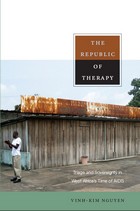
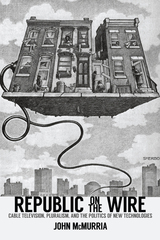
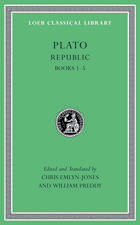
The Platonic ideal of government.
Plato of Athens, who laid the foundations of the Western philosophical tradition and in range and depth ranks among its greatest practitioners, was born to a prosperous and politically active family ca. 427 BC. In early life an admirer of Socrates, Plato later founded the first institution of higher learning in the West, the Academy, among whose many notable alumni was Aristotle. Traditionally ascribed to Plato are thirty-six dialogues developing Socrates’ dialectic method and composed with great stylistic virtuosity, together with thirteen letters.
Republic, a masterpiece of philosophical and political thought, concerns righteousness both in individuals and in communities, and proposes an ideal state organized and governed on philosophical principles. This edition, which replaces the original Loeb edition by Paul Shorey, offers text, translation, and annotation that are fully current with modern scholarship. The Loeb Classical Library edition of Plato is in twelve volumes.

Plato, the great philosopher of Athens, was born in 427 BCE. In early manhood an admirer of Socrates, he later founded the famous school of philosophy in the grove Academus. Much else recorded of his life is uncertain; that he left Athens for a time after Socrates' execution is probable; that later he went to Cyrene, Egypt, and Sicily is possible; that he was wealthy is likely; that he was critical of 'advanced' democracy is obvious. He lived to be 80 years old. Linguistic tests including those of computer science still try to establish the order of his extant philosophical dialogues, written in splendid prose and revealing Socrates' mind fused with Plato's thought.
In Laches, Charmides, and Lysis, Socrates and others discuss separate ethical conceptions. Protagoras, Ion, and Meno discuss whether righteousness can be taught. In Gorgias, Socrates is estranged from his city's thought, and his fate is impending. The Apology (not a dialogue), Crito, Euthyphro, and the unforgettable Phaedo relate the trial and death of Socrates and propound the immortality of the soul. In the famous Symposium and Phaedrus, written when Socrates was still alive, we find the origin and meaning of love. Cratylus discusses the nature of language. The great masterpiece in ten books, the Republic, concerns righteousness (and involves education, equality of the sexes, the structure of society, and abolition of slavery). Of the six so-called dialectical dialogues Euthydemus deals with philosophy; metaphysical Parmenides is about general concepts and absolute being; Theaetetus reasons about the theory of knowledge. Of its sequels, Sophist deals with not-being; Politicus with good and bad statesmanship and governments; Philebus with what is good. The Timaeus seeks the origin of the visible universe out of abstract geometrical elements. The unfinished Critias treats of lost Atlantis. Unfinished also is Plato's last work of the twelve books of Laws (Socrates is absent from it), a critical discussion of principles of law which Plato thought the Greeks might accept.
The Loeb Classical Library edition of Plato is in twelve volumes.
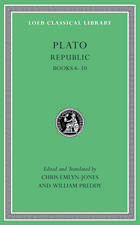
The Platonic ideal of government.
Plato of Athens, who laid the foundations of the Western philosophical tradition and in range and depth ranks among its greatest practitioners, was born to a prosperous and politically active family ca. 427 BC. In early life an admirer of Socrates, Plato later founded the first institution of higher learning in the West, the Academy, among whose many notable alumni was Aristotle. Traditionally ascribed to Plato are thirty-six dialogues developing Socrates’ dialectic method and composed with great stylistic virtuosity, together with thirteen letters.
Republic, a masterpiece of philosophical and political thought, concerns righteousness both in individuals and in communities, and proposes an ideal state organized and governed on philosophical principles. This edition, which replaces the original Loeb edition by Paul Shorey, offers text, translation, and annotation that are fully current with modern scholarship. The Loeb Classical Library edition of Plato is in twelve volumes.

Plato, the great philosopher of Athens, was born in 427 BCE. In early manhood an admirer of Socrates, he later founded the famous school of philosophy in the grove Academus. Much else recorded of his life is uncertain; that he left Athens for a time after Socrates' execution is probable; that later he went to Cyrene, Egypt, and Sicily is possible; that he was wealthy is likely; that he was critical of 'advanced' democracy is obvious. He lived to be 80 years old. Linguistic tests including those of computer science still try to establish the order of his extant philosophical dialogues, written in splendid prose and revealing Socrates' mind fused with Plato's thought.
In Laches, Charmides, and Lysis, Socrates and others discuss separate ethical conceptions. Protagoras, Ion, and Meno discuss whether righteousness can be taught. In Gorgias, Socrates is estranged from his city's thought, and his fate is impending. The Apology (not a dialogue), Crito, Euthyphro, and the unforgettable Phaedo relate the trial and death of Socrates and propound the immortality of the soul. In the famous Symposium and Phaedrus, written when Socrates was still alive, we find the origin and meaning of love. Cratylus discusses the nature of language. The great masterpiece in ten books, the Republic, concerns righteousness (and involves education, equality of the sexes, the structure of society, and abolition of slavery). Of the six so-called dialectical dialogues Euthydemus deals with philosophy; metaphysical Parmenides is about general concepts and absolute being; Theaetetus reasons about the theory of knowledge. Of its sequels, Sophist deals with not-being; Politicus with good and bad statesmanship and governments; Philebus with what is good. The Timaeus seeks the origin of the visible universe out of abstract geometrical elements. The unfinished Critias treats of lost Atlantis. Unfinished also is Plato's last work of the twelve books of Laws (Socrates is absent from it), a critical discussion of principles of law which Plato thought the Greeks might accept.
The Loeb Classical Library edition of Plato is in twelve volumes.
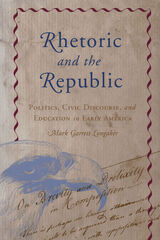
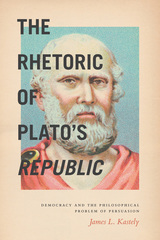
As Kastely shows, the Republic begins with two interrelated crises: one rhetorical, one philosophical. In the first, democracy is defended by a discourse of justice, but no one can take this discourse seriously because no one can see—in a world where the powerful dominate the weak—how justice is a value in itself. That value must be found philosophically, but philosophy, as Plato and Socrates understand it, can reach only the very few. In order to reach its larger political audience, it must become rhetoric; it must become a persuasive part of the larger culture—which, at that time, meant epic poetry. Tracing how Plato and Socrates formulate this transformation in the Republic, Kastely isolates a crucial theory of persuasion that is central to how we talk together about justice and organize ourselves according to democratic principles.
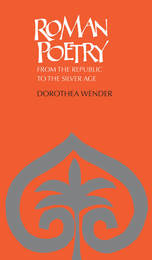
Meshing her own wit, verve, and gusto with that of the Roman poets she translates, Dorothea Wender strips both the cloak of awe and the dusty mantle of boredom from the classics.
Available for the first time in paper, these English verse translations of the major classical Roman poets feature hefty selections from the savage urban satire of Juvenal, the moving philosophy of Lucretius, the elegance of Horace, the grace and humor of Catullus, the grave music of Virgil, the passion of Propertius, the sexy sophistication of Ovid, and the obscenity of Martial.
Noting Wender’s “candor,” the Classical Outlook reported that in “20th-century terms, she makes the poems lively and pertinent.”
The Boston Globe said, “The conciseness is astonishing, the information [in the introductions to each poet] provocative. The freshness of the selections should do much to augment the audience for these poets and may even inspire examination of the originals.”
The best advice came from Wender herself: “Read these good poems.”
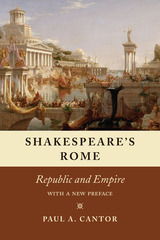
In Shakespeare’s Rome, Cantor examines the political settings of Shakespeare’s Roman plays, Coriolanus and Antony and Cleopatra, with references as well to Julius Caesar. Cantor shows that Shakespeare presents a convincing portrait of Rome in different eras of its history, contrasting the austere republic of Coriolanus, with its narrow horizons and martial virtues, and the cosmopolitan empire of Antony and Cleopatra, with its “immortal longings” and sophistication bordering on decadence.
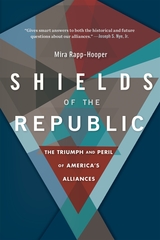
Is America’s alliance system so quietly effective that politicians and voters fail to appreciate its importance in delivering the security they take for granted?
For the first century and a half of its existence, the United States had just one alliance—a valuable but highly controversial military arrangement with France. Largely out of deference to George Washington’s warnings against the dangers of “entangling alliances,” subsequent American presidents did not consider entering another until the Second World War. Then everything suddenly changed. Between 1948 and 1955, US leaders extended defensive security guarantees to twenty-three countries in Europe and Asia. Seventy years later, the United States had allied with thirty-seven.
In Shields of the Republic, Mira Rapp-Hooper reveals the remarkable success of America’s unprecedented system of alliances. During the Cold War, a grand strategy focused on allied defense, deterrence, and assurance helped to keep the peace at far lower material and political costs than its critics allege. When the Soviet Union collapsed, however, the United States lost the adversary the system was designed to combat. Its alliances remained without a core strategic logic, leaving them newly vulnerable.
Today the alliance system is threatened from without and within. China and Russia seek to break America’s alliances through conflict and non-military erosion. Meanwhile, US politicians and voters are increasingly skeptical of alliances’ costs and benefits and believe we may be better off without them. But what if the alliance system is a victim of its own quiet success? Rapp-Hooper argues that America’s national security requires alliances that deter and defend against military and non-military conflict alike. The alliance system is past due for a post–Cold War overhaul, but it remains critical to the country’s safety and prosperity in the 21st century.

“Rapp-Hooper takes on directly and convincingly the Trumpian critique that alliances are not worth the investment and have led the nation to fight other people’s battles for them…Her deep erudition, crisp prose style, and innate brilliance shine through on most every page.”
—Boston Review
“The threat of COVID-19 has bolstered her argument, making plain both the importance of the alliance system and the imperative to adapt alliances to new ends.”
—Foreign Policy
“Musters rock-solid evidence to demonstrate what policymakers have long believed: that America’s alliances are a remarkably effective foreign policy tool.”
—Stephen Hadley, former National Security Advisor
“Argues persuasively that the complex alliance system instituted after the devastation of World War II has proven remarkably successful.”
—Kirkus Reviews
For the first 150 years of its existence, heeding George Washington’s warning about the dangers of “entangling alliances,” the United States had just one alliance—a valuable but highly controversial military arrangement with France. That changed dramatically with the Second World War. Between 1948 and 1955, the United States extended defensive security guarantees to twenty-three countries in Europe and Asia. Seventy years later, it is allied with thirty-seven countries.
Today the alliance system is threatened from without and within. China and Russia seek to break America’s alliances through conflict and non-military erosion, while US politicians and voters, skeptical of costs, believe we may be better off without them. But what if the alliance system is a victim of its own quiet success? Mira Rapp-Hooper argues that a grand strategy focused on allied defense, deterrence, and assurance helped to keep the peace throughout the Cold War and that the alliance system remains critical to America’s safety and prosperity in the twenty-first century.
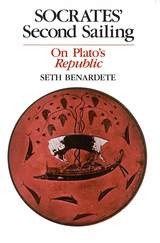
"Cryptic allusions, startling paradoxes, new questions . . . all work to give brilliant new insights into the Platonic text."—Arlene W. Saxonhouse, Political Theory



To Keep the Republic is a wake-up call about the responsibilities that come with being a citizen in a participatory democracy. It describes the many ways that individuals can make a difference on both local and national levels—and explains why they matter. Political scientist Elizabeth C. Matto highlights the multiple facets of democratic citizenship, identifies American democracy’s sometimes competing values and ideals, and explains how civic engagement can take various forms, including political conversation. Combining political philosophy with concrete suggestions for how to become a more engaged citizen, To Keep the Republic reminds us that democracy is not a spectator sport; it only works when we get off the sidelines and enter the political arena to make our voices heard.

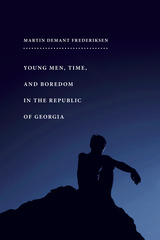
In the midst of societal optimism, how do young men cope with the loss of a vibrant future? Young Men, Time, and Boredom in the Republic of Georgia provides a vivid exploration of the tension between subjective and societal time and the ways these tensions create experiences of marginality among under- or unemployed young men in the Republic of Georgia.
Based on long-term ethnographic fieldwork, Martin Demant Frederiksen shows how the Georgian state has attempted to make the so-called post-Soviet transition a thing of the past as it creates new ideas about the future. Yet some young men in the regional capital of Batumi do not feel that they are part of the progression these changes create. Instead, they feel marginalized both by space and time—passed over and without prospects.
This distinctive case study provides empirical evidence for a deeper understanding of contemporary societal developments and their effects on individual experiences.
READERS
Browse our collection.
PUBLISHERS
See BiblioVault's publisher services.
STUDENT SERVICES
Files for college accessibility offices.
UChicago Accessibility Resources
home | accessibility | search | about | contact us
BiblioVault ® 2001 - 2024
The University of Chicago Press









